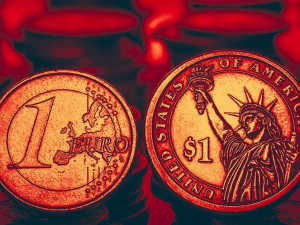
Governments do not own banks as a default but often have varying degrees of control over them via regulation and oversight. Whether a government owns a bank or not also depends on the type of bank in question. Governments sometimes partially own banks, and also can have control over them through other means, such as regulation and through a central bank, even if they don’t directly own the bank itself.
Many banks are private entities that work very closely with the government, and have to abide by government regulations and oversight but are still separate bodies. Both governments and banks have an interest in each other, but in times of economic turmoil, the two entities can often come into conflict with each other.

Types of banks
Firstly, it’s important to recognise that there are several different types of banks, all of which have different functions and operate in different ways. Often huge banks will have some or all of these versions of banks under their business umbrella, but each one will operate for a distinct purpose.
Retail banks
Retail banks are often referred to as consumer banks and serve individual customers and small businesses by offering basic checking accounts, savings accounts, loans, mortgages and other such financial products.
Commercial banks
Commercial banks are focused on providing services to businesses and corporations, offering financial products such as business loans, credit, financial management services, and other solutions to help regulate and control their finances.
Investment banks
Investment banks are specialised in providing investment services, facilitating mergers and acquisitions, financial advice, and underwriting securities issuances.
Central banks
Central banks are the type of banks which are owned by governments. The Bank of England for example is a nationalised, public body, meaning that it must answer to Parliament and is owned by the government. However, even the Bank of England is partially independent to avoid political influence, so it is able to conduct some of its own business independently.
Other banks
There are also:
- Cooperative banks
- Savings banks
- Development banks
- Internet banks
Government conflict with banks
As seen from the list above, governments generally do not have total control of banks, and even central banks are often allowed to operate independently in certain areas.
One of the clearest examples that demonstrates the disparity between governments and banks is the Great Recession, which was caused by risky lending practices by banks. This reminded many people that banks are businesses, and do not always operate in the interest of the government.
Iceland was where many of the issues of the Great Recession were triggered. In 2001, banks in Iceland were deregulated, which meant that they were no longer restrained by government rules. Iceland’s three largest banks (Kaupthing, Glitnir and Landsbanki), much like the banks of Wall Street, began to engage in risky lending practices and piled up a huge amount of external debt – 9.5 trillion Icelandic krónur (approximately £43bn), which was more than seven times the GDP of Iceland at the time.
This caused the 2008-2011 Icelandic Financial Crisis, and preceded an economic collapse of the country which the government was unable to prevent, and was one of the triggers of the Great Recession. Trust in the banks inevitably hit an all-time low.
What is deregulation?
Deregulation is a term for the general easing of restrictions put on banks by governments. This is where governments can alter the amount of control they have over banks and what they are allowed to do. Deregulation can increase economic growth and fuel competition, but it can also figuratively cut the brakes of an economy and create riskier economic practices.
Removal of entry barriers
Deregulation may involve eliminating any restrictions that might be in the way of new banks entering the market. This can create new competition but also create banks which might engage in riskier and less legitimate practices.
Relaxing lending rules
Qualifications regarding loans and interest rates can be relaxed, meaning that banks have more flexibility in how much they can lend and to who. This can be good for encouraging economic growth, as businesses and people might be more inclined to borrow money, but can create situations where banks lend more than they can afford to.
Easing of capital requirements
Governments also control how much banks are required to hold in reserves, and requiring the banks to hold more or less will control how liquid or illiquid the bank is.
As we covered in a previous article, banks are required to keep a certain amount of cash in reserves in case of failure. An amount that is too large might mean that a bank is restricted in its investment capabilities, but an amount that is too small might mean a bank is at greater risk of going bust.
Reducing oversight
Deregulation from governments can also involve reducing the amount of supervision on a bank’s activities. Banks will be required to report less, and abide by fewer regulations, which means they will be able to thrive, but also opens the risk that they will begin to operate purely for their own interests, not the benefit of the country or world economy.
Government corruption with banks
The separation of governments from banks is not always a bad thing, and in the past banks have often colluded with governments to avoid repercussions for financial crimes.
Banco Espirito Santo (BES), a Portuguese bank was bailed out in 2014 by the government for €4.4bn and marked the end of BES as a private bank. But as the Portugal Resident noted, this buyout was at the cost of the taxpayer, costing them “untold billions”, and Ricardo Salgado, the former head of the bank, was accused of 65 crimes. The investigation is still ongoing in 2023.
There were also revelations that many high-ranking government officials had close connections with Salgado and investments in BES, raising serious questions about conflict of interest and the government’s personal involvement in the financial system.

Future of banking
So in conclusion, governments do not directly own banks, but they often control them to varying degrees and put various restrictions on banks which act like speed limits. Particularly after the Great Recession, governments have stepped in to curb the activities of banks, such as introducing ring-fencing in the UK (which as of 2022 is set to be relaxed in future).
As the economy develops and changes, governments will try to maintain a balance of easing and restricting certain areas to ensure that the economy grows at a healthy rate, and is protected from economic turmoil in the future.
Caleb Hinton
Caleb is a writer specialising in financial copy. He has a background in copywriting, banking, digital wallets, and SEO – and enjoys writing in his spare time too, as well as language learning, chess and investing.



